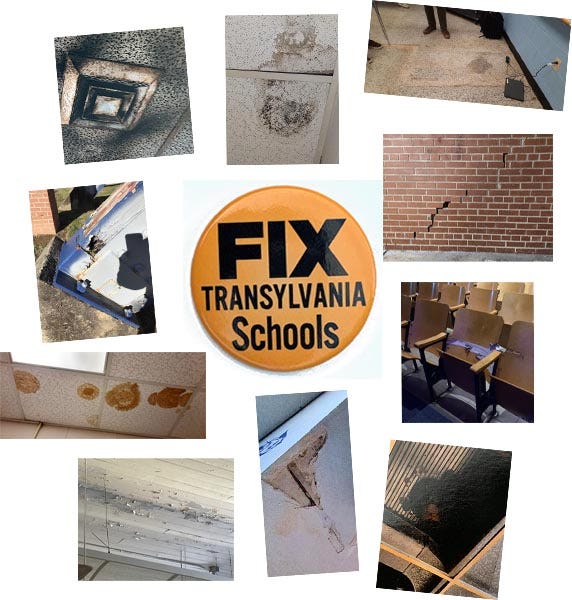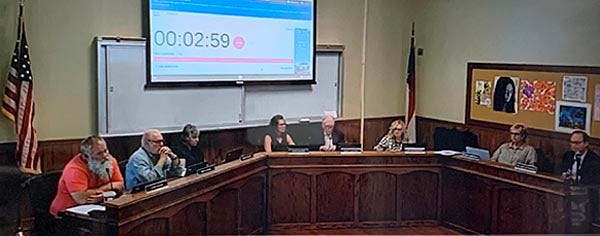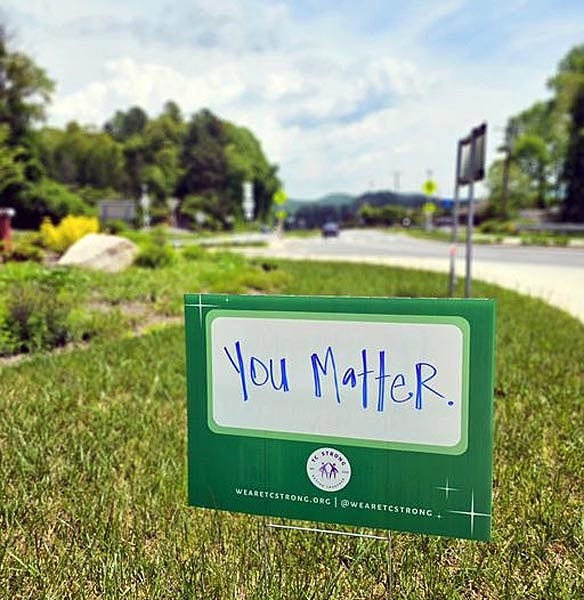The Value of a Child Is Not How Much They Cost
In fact, our elected leaders owe health, safety and education to all of them
To value a child doesn’t mean to put a price on them. In fact, if you have to ask, “Are they worth this expense?” something’s wrong with your budget.
In my state, North Carolina, public school money comes from federal, state, and county Commission Board funding. Local School Boards can’t levy taxes, so they have to ask Commissioners for enough money to fully support students, teachers and staff.
The Commissioners’ legal obligation is to fund the schools’ capital needs. But they have the power to do more, and more is needed now that our state legislature in Raleigh is working to privatize education.
So County governments have to fill the gaps, such as helping to pay for school counselors. And our Commissioners have said they care about our students, as they struggle with the effects of COVID restrictions.
So I was surprised when they recently denied the School Board’s budget request to keep three counselors who have helped reduce student suicide attempts and chronic absenteeism over the past year.
One Commissioner seemed to think the counselors weren’t cost effective, saying,
Whether we like to admit it or not, you know, schools are a business. Everything is a business.

She also said that “government isn’t the solution to every problem”, and advised the School Board to go find free services for our students’ mental health.
But the effects of COVID are not all that’s behind our urgent need for school counselors. Seven years ago voters passed a $68 million school improvement bond; the Commissioners have been collecting the taxes to pay for it, but they still haven’t acted on improving the schools.
By now, the dangerous, demoralizing conditions of the school buildings are hurting students, teachers and families.
The community’s getting involved.

After the demonstration in the photo above, some students brought their signs inside to the public meeting.
Last October, a high school student addressed Commissioners during the Public Comment period. She gave them printed handouts and said,
As you can see in these pictures, our school is suffering from what the EPA calls ‘sick-building syndrome’. Students spend seven hours a day in these conditions. The lack of care has affected student morale.
This is a county-wide issue. It isn’t something we can keep excusing or bide our time on. It will have lasting consequences, mentally and physically.
One local group has formed the School Improvement Coalition. Another is called Fix Our Schools. They and others are sharing photos of school buildings, and buttons to wear, to let people know that our tax money is not going toward the school upgrades we voted for.

Parents have also spoken out. Here are some of their Public Comments to Commissioners:
I’m concerned for the health, safety and well-being for my children. Let’s stop confusing per-student expenditures with capital expenses. Let’s stop blaming our students and our principals.
I’m a parent and a trained contractor. I’m deeply concerned for the safety of students and faculty in these buildings. Teachers stand in puddles at chalkboards. The cafeteria has ceiling paint flaking into students’ food.
A failure of leadership has led to a failure in our students’ health.
Stop hiding behind fiscal responsibility and pretending you don’t know what condition our schools have reached. When it comes to the safety of humans, talk doesn’t matter. Results matter.
After these comments, Commissioner McCall called for the Board to “shut out the noise” made by some of the public (their constituents), because it will only delay their working with the Board of Education.
On May 20, a teacher addressed the Board of Education during Public Comment. She recalled a time when our public school system was a well-supported workplace, full of “enthusiasm and passion”. But that’s gone. She said,
We need to bring back that positive climate. Now, there’s little support staff. We are given directives that don’t work in practice, and we’re expected to do the undoable, day after day. Teachers are exhausted.
Our new district leadership seems unconcerned with student learning and the learning environment. But we’re the experts. It’s time we were recognized and utilized for what we bring to the table.
I’ve turned in my own resignation.
This teacher was also hopeful. If we vote for “people who care about education”, she said, the state and counties like ours can rebuild the successful public school system she remembers.
Personally, I can say there are wonderful things going on in our schools right now. On May 12 we were thrilled by an excellent high school musical production. The students’ professionalism and spirit made it obvious that the cast and crew were inspired by their teachers. I was reminded of what can be done, and what’s worth fighting for.
I took this picture, below, of the cast and crew on stage, minutes after the final bows. No one wanted to leave.
At heart, our school system supports our students and teachers, and our community offers them open arms. The local group TC Strong (Transylvania County Strong) posts reminders all over our county, showing our students that they are not alone.
The other day, I asked a teacher’s mother to sign a petition in favor of hiring the three counselors I told you about. The woman said she didn’t dare sign it because that might put her daughter’s job in jeopardy.
This isn’t the first time I’ve heard that teachers are afraid to speak out for better working conditions.
Recently, our local Democratic Party hosted Braxton Winston, candidate for North Carolina Commissioner of Labor and the son of a public school teacher.
I asked him, “If elected, could you help protect our teachers who now fear speaking up?”
He told me,
The short answer is yes! Protecting workers from retaliation after they speak up for issues that affect their health and well-being, is a core responsibility of the NCDOL.
I think this is especially important when it comes to our public work force, which includes teachers since they are unable to organize or participate in a collective bargaining process with the legislature.

He went on to say,
It is important that the Commissioner of Labor and other members of the Council of State be advocates for the things teachers need, and help protect their rights under the law, which includes speaking up against poor work conditions.
Braxton and many others remind me that lots of us are working for the well-being of our children and teachers, and are not stuck on cutting budgets or, like our legislature, shifting public money to private schools.
Let’s do what we’re meant to do here on Earth, and invest the money in people. Our kids are worth it. I have hope.








Vote out these commissioners who think in simplistic terms. Vote in those who recognize “the business” of public education is to invest in the future of our Republic by ensuring our young people receive an education that promotes achievement of their potential as productive, informed, fulfilled and happy citizens.
Thank you, Deda. Again you have expressed the frustrations of many in a clear to understand way. I take issue with Commissioner McCall - educating our people (young or old) is not a business. Yes, these institutions have structure to spend funds allotted to them but they are not and should not be thought of as places to make money. Schools are public institutions that build minds to be creative and knowledgable to make our world better for everyone.